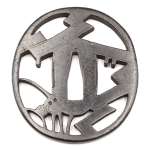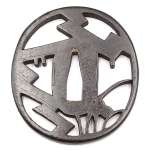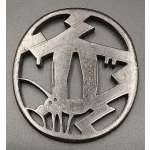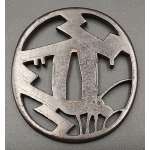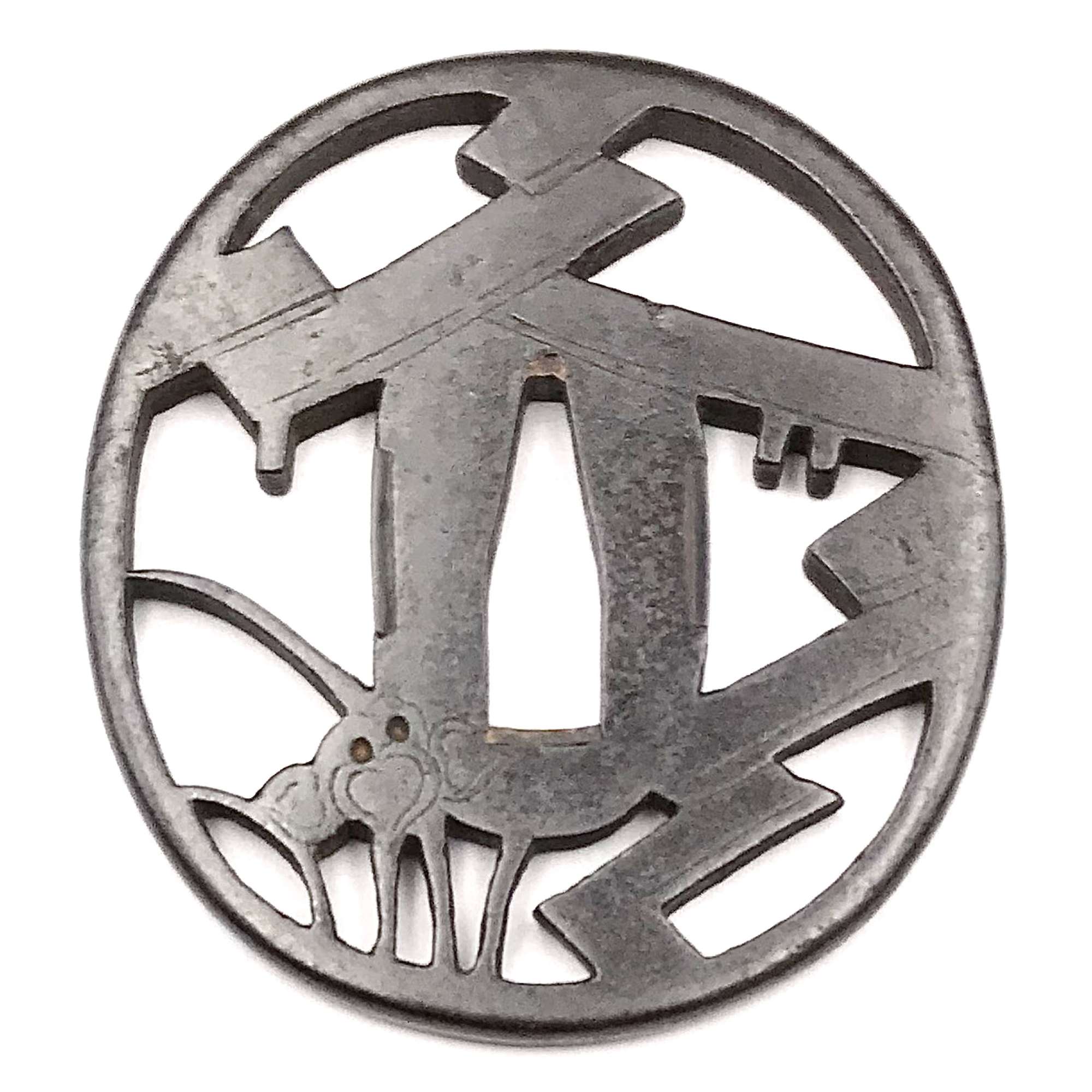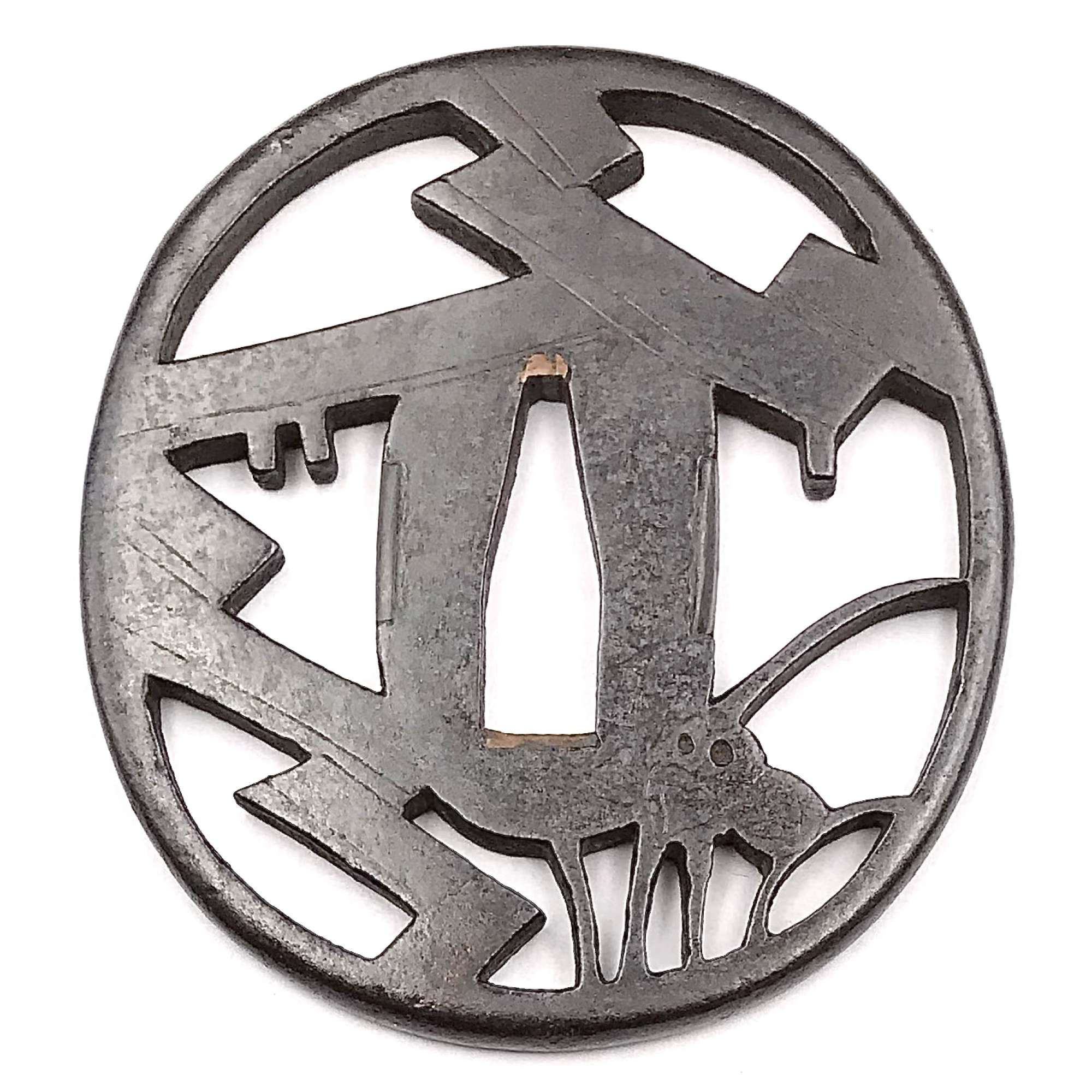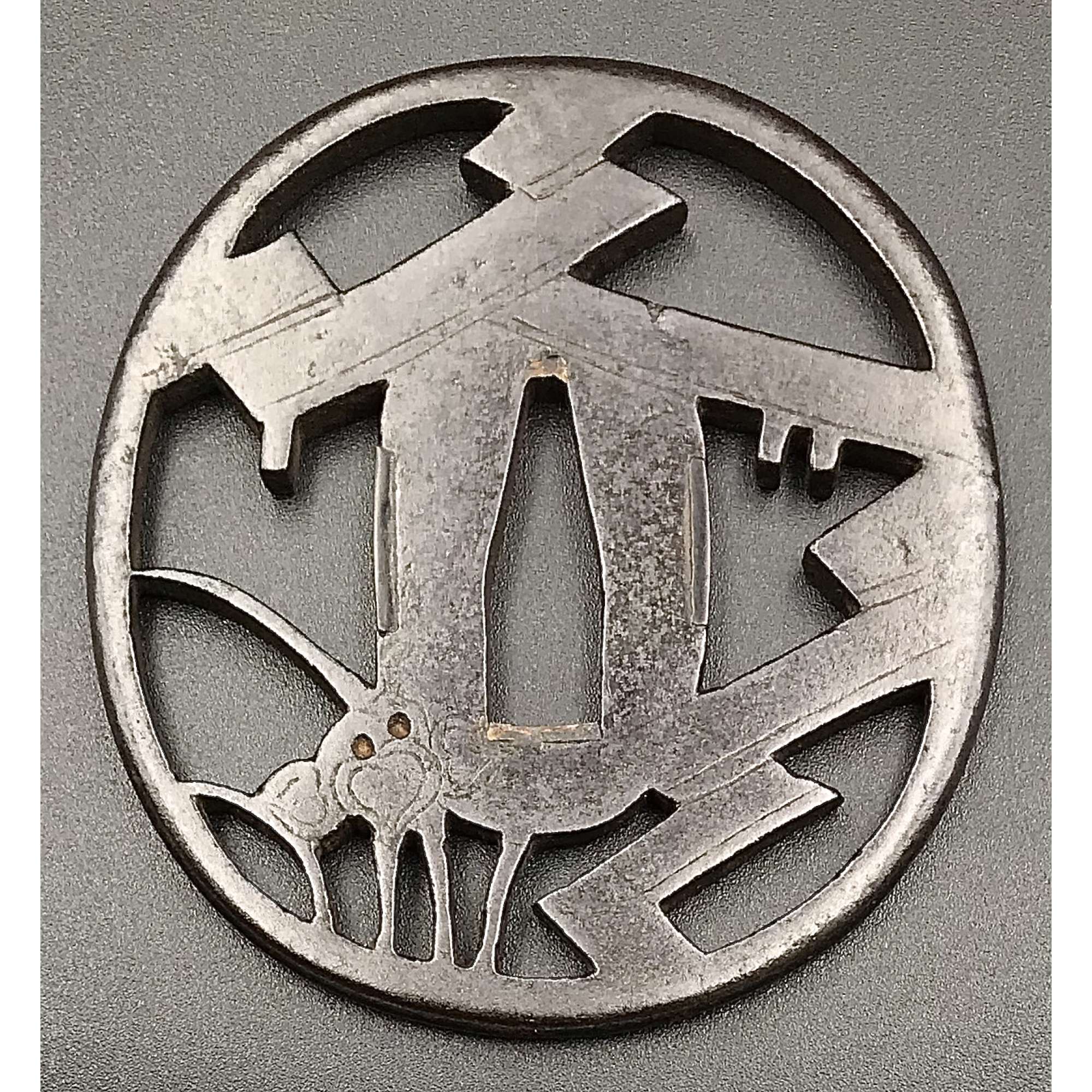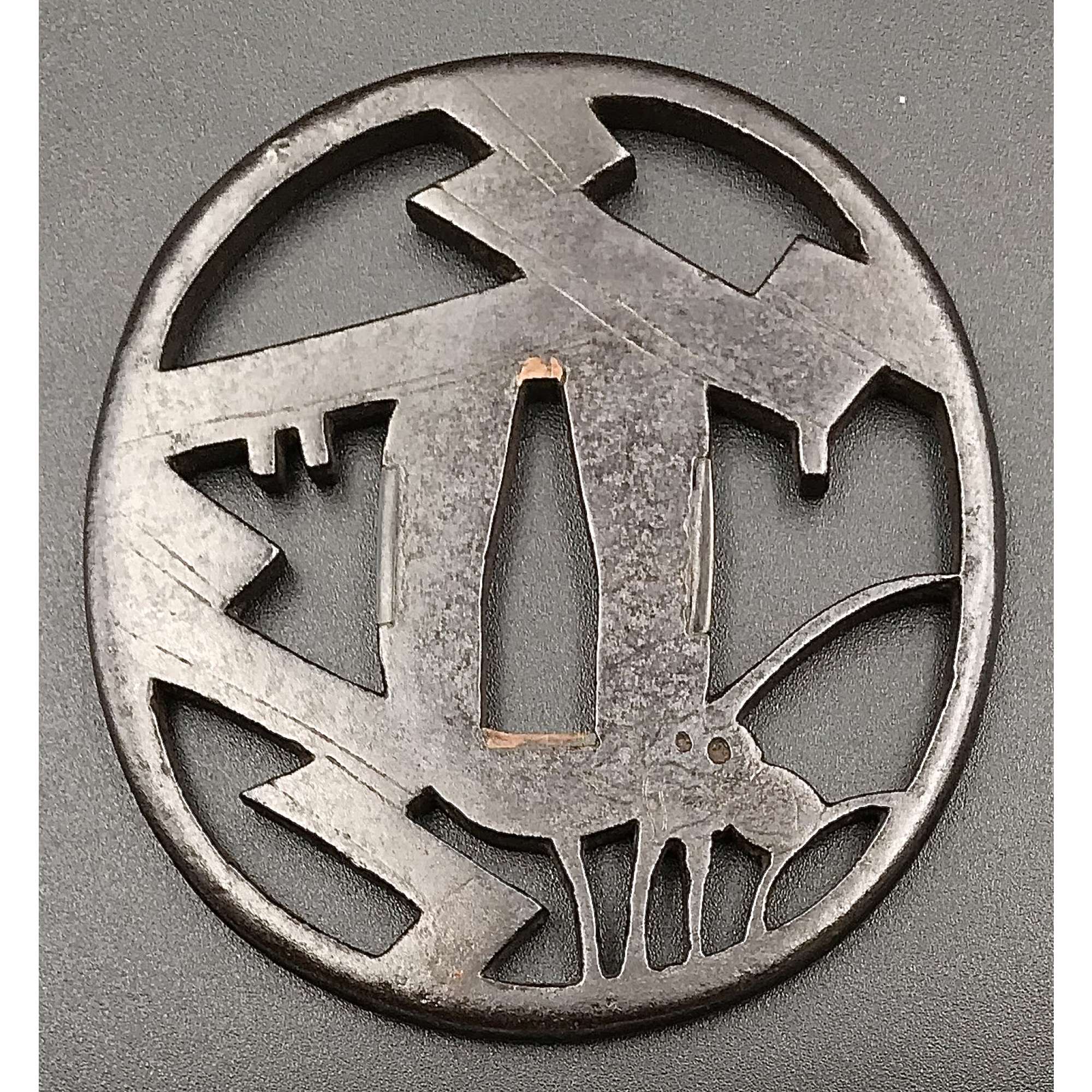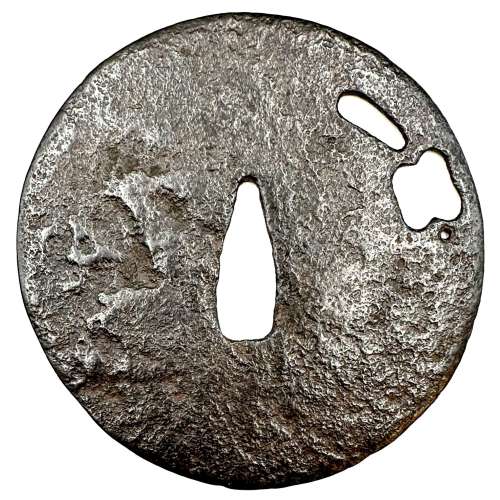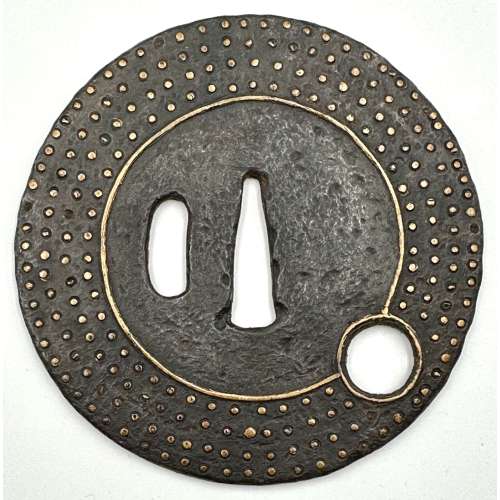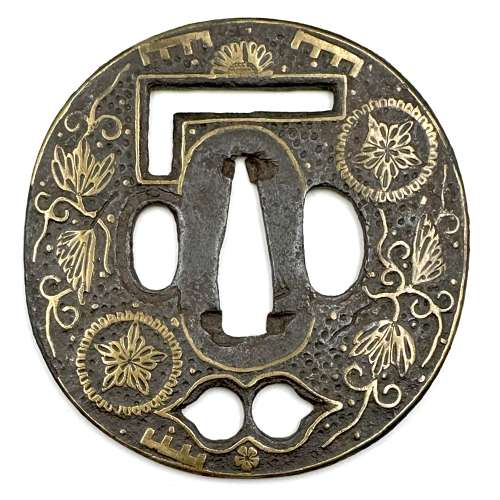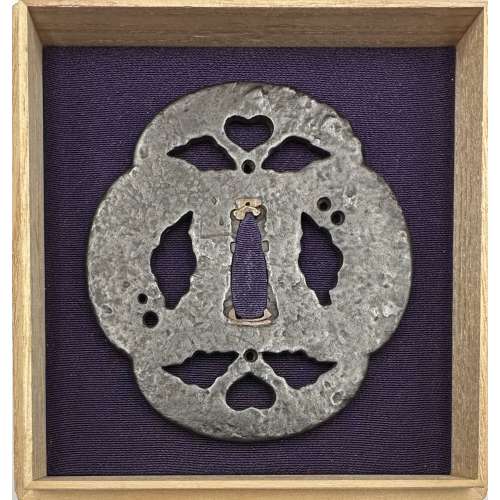Iron tsuba of oval form with design of iris and plank bridge (yatsubashi) in openwork (sukashi). Rounded cornered rim.
Unsigned. Attributed to Jingo – 3rd generation Shimizu, 2nd generation Jingo (1691-1777) [M. Sesko, Genealogy…, p. 94].
Edo period: Late 18th century (Hohreki / Meiwa era).
Height: 69.5 mm. Width: 65.2 mm. Rim thickness: 4.6 mm. Center thickness: 4.8 mm.
Provenance: Sasano Masayuki Collection, № 251: “Shimizu. Third generation Jingo (died at 87 years of age in the sixth year of An-ei, 1777). The eight-section bridge with irises are arranged to create the design of ‘yatsubashi’. The features are unique for the Shimizu school and show no influence of the Hirita, Nishigaki or Hayashi schools”.
The design visually resembles a butterfly. As described in Family Crests of Japan by Stone Bridge Press [Family Crests of Japan; Stone Bridge Press, Berkeley, CA, 2007], and also in Japanese Family Crests by Yuzuru Okada [Yuzuru Okada. Japanese Family Crests // Series: Tourist Library: 37. Board of tourist industry; Japanese Government Railways, – 1941], there is a special technique used in construction of family crests, called ‘reshaping’ by the former and ‘reconstruction’ by the latter: “reconstruction is realized when a motive has its general shape composed of the detail of entirely different motive as, for instance, the crest of a butterfly formed of pine-needles. […] The fanciful and ingenious forms evolved in this way may be represented by the kasiwa-giri or ‘oak-leaf-paulownia’, the ogi-bisi or ‘fan-lozenge’, the matuba-zuru or ‘pine-needle-crane’, the omodaka-kotyo or ‘water-plantain-butterfly’, etc.” In our case we can call the motif yatsubashi-chocho or ‘Iris-and-Bridge—Butterfly’.


